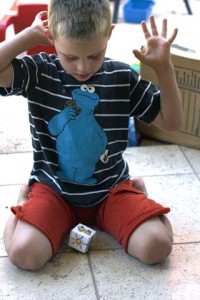I am in the early chapters of a book called Shadow Syndromes, and currently am fascinated by the concept the authors put forward that they label Noise.
In the same way, they say, as all sick people are going to have a baseline of feeling cruddy (tired, confused, unmotivated, general yuck) all brain issues also have a baseline of some general, indeterminate but distinctly distracting busy-ness that gets in the way of our brains doing exactly what we want them to do.
Just as literal noise (the neighbor’s music, nearby traffic, baby crying can be alternately ignorable and maddening, so can this brain-noise. It’s something extra to process, and so an additional draw on our physical/intellectual resources.
~
There’s this (thank God, happily married) researcher named Gottman who’s been studying relationships and marriage for decades. This book describes Gottman’s observation of the direct correlation between heart rate and the capacity to argue like adults.
Before Gottman puts his study-subjects “under glass,” and tells them to pick a subject of conflict, he hooks up monitors to measure a variety of physical markers– including “general somatic activity” (how active is the nervous system).
The correlation is consistent with what we’ve all experienced: the more active all these markers get, the less functional the communication becomes. Gottman calls it “diffuse physiological arousal,” and it’s a reasonable summary of what Shadow Syndrome‘s authors call noise.
“Gottman actually advises troubled couples to take their pulses in the midst of battle. In his experience, when a man’s pulse reaches eighty beats per minute, on average, and a woman’s pulse ninety, there is little point in going on.”
Why?
“To put it bluntly, once in a noisy state, people are simply not as smart as they are when calm.”
The heart rate is just the at-home check anybody can do: the fact is the entire body of a combative individual is getting worked up.
Intensifying the noise.
It is a collection of extra demands on the brain, diverting energy from the “higher processes” of reasoning, empathy, the reading of body language, and subtext.
What warring partners are left with is the dubiously termed, overlearned behaviors.
These are the patterns we have repeated so many times we have burned their processes into our neural pathways. They were learned and practiced in childhood, and so have had the most time to entrench themselves as the default position.
You don’t have to think about them and that is the point.
When you are too tired (or busy) to think, these are your go-to behaviors.
Which, really, explains a lot for me. In real-life and in writing.
I’m an over-thinker already, so when I’m mapping out a scene, I really have a hard time, in good conscience, making a character do something stupid.
I mean, I know people do stupid things all the time and in a story that’s often how you get interesting things to happen. Character-A does something stupid, and we get to spend a chapter (or half the book) getting him out of it.
Other than writing by the seat of my pants (and not seeing the trouble myself, so I’ll believe the character wouldn’t) the best advice I ever got about getting characters to act stupid was Have them make decisions in a hurry.
Another option, according to this research, is to have them act in anger, or some other intense emotion, or while there’s enough other stuff going on that the decision-maker is not functioning at full capacity.
The point is– well, two points.
a) We really do deteriorate as an argument stresses us. So if progress (or relationship improvement) is our goal, taking breaks really is the best policy.
This might even be why discussing the issue in front of someone you both respect (even if s/he offers no direct input) can have value: it might be easier to maintain self-control with an audience, and you could get farther before hitting critical mass.
Maybe this is even the point of talk-therapy: the counselee is “forced” to move linearly and may be less-likely to perseverate or deteriorate to “overlearned processes” like anxiety.
b) What you were like as a kid still affects who you are now.
The subset of this being: teach your kids processing/communication skills NOW. And take every opportunity to practice with them.




